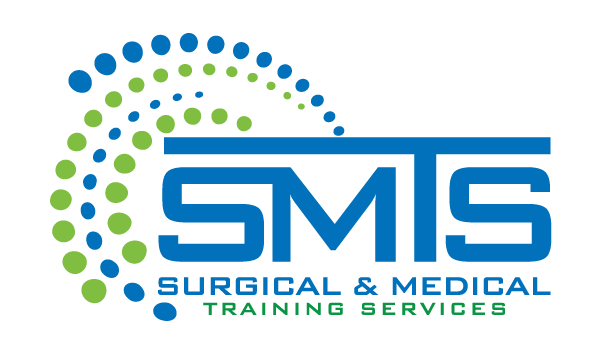The Effective Management Strategies For Surgical Labs
Surgical Laboratories are vital in the healthcare system, with precision and efficiency being imperative and non-negotiable. Effectively managing these labs necessitates a unique skill set and strategic thinking to ensure seamless operations, precise outcomes, and patient safety. This blog post will delve into various effective management strategies designed to improve efficiency, boost results, and elevate overall performance in Surgical Labs, specifically emphasizing the contributions of The Surgical & Medical Training Services.
Cultivate a Culture of Safety and Quality
In Surgical Labs, the top priority is to ensure safety and quality to protect the well-being of patients and staff. Establishing a safety culture requires setting up clear procedures, offering continuous training, and encouraging a setting where all individuals can voice concerns. Monitoring processes, detecting deviations, and quickly implementing corrective actions are essential quality control measures.
Conduct Regular Safety Audits
Routine safety inspections are necessary to detect possible dangers, evaluate adherence to rules, and promptly deal with safety issues. The assessments must examine various aspects of the Surgical Labs, including maintenance of equipment, training of employees, adherence to cleanliness standards, and preparedness for unexpected situations. Through regular safety audits, laboratory managers can actively reduce risks and ensure a safe environment for everyone.
Embrace Continuous Quality Improvement
- Continuous quality improvement involves:
- Analyzing data
- Identifying areas for enhancement
- Implementing changes
- Monitoring outcomes
- Adopting a mindset focused on ongoing enhancement within surgical laboratories can result in the following:
- Process optimization
- Error reduction
- Enhanced overall performance
- Quality improvement initiatives should seek input from all parties involved, such as:
- Lab technicians
- Administrators
- Healthcare providers
Optimize Workflow and Resource Allocation
Effective management of workflows is crucial to optimize productivity and reduce delays in Surgical Labs. Labs can enhance resource utilization, improve turnaround times, and promptly deliver results to healthcare providers by optimizing workflow processes and allocating resources effectively.
Streamline Sample Processing
Streamlining sample processing involves refining methods, implementing automation technologies, and establishing standard protocols to accelerate the testing procedure. Surgical Labs can enhance efficiency, scalability, and accuracy in handling samples by reducing manual processes, automating repetitive tasks, and incorporating quality control measures.
The Key to Unbeatable Performance
Precision is extremely important in Surgical Labs, and it begins with consistently taking care of the equipment. Lab managers play a crucial role by organizing thorough maintenance checks, calibrations, and validations to ensure equipment functions effectively. This proactive strategy avoids malfunctions, reduces downtime, and protects data integrity. Making equipment maintenance a priority is not simply a chore but a plan for ensuring efficient operations and consistent performance.
Enhance Communication and Collaboration
Good communication and teamwork are key elements of successful Surgical Labs management. Labs can improve coordination, efficiency, and overall performance by encouraging open communication and teamwork and using collaborative tools.
- Mastering Clear Communication Protocols
Clear communication protocols should ensure all staff members are informed, updated, and aligned on processes, procedures, and expectations. Regular team meetings, communication platforms, and feedback mechanisms can facilitate transparent communication and promote a culture of collaboration in Surgical Labs.
- Fostering Cross-Disciplinary Synergy
Surgical Labs must work with experts, such as administrators, medical professionals, and lab technicians, to provide outstanding services. Labs can enhance patient results and optimize processes by encouraging teamwork among specialists and combining their knowledge and viewpoints.
- Invest in Staff Training and Development
In Surgical Labs, focusing on staff training and development is crucial. It creates an experienced, informed, and driven team. Ongoing education, opportunities for professional growth, and programs to enhance skills help employees succeed in their positions, adjust to new technologies, and provide outstanding patient care.
- Offer Continuous Training Programs
Continuous training programs must be customized for laboratory employees, focusing on recent technologies, safety procedures, quality assurance practices, and regulatory changes. Investing in staff training can improve skills, encourage professional development, and cultivate a culture of excellence within the team.
- Promote An Environment of Continuous Learning
Promoting a culture of learning includes providing chances for employees to learn, exchange information, and constantly enhance their skills. Mentoring programs, peer-to-peer training, and cross-training initiatives can assist employees in enhancing their skills, working together efficiently, and staying updated on advancements in Surgical Lab management.
Conclusion
In the constantly changing world of healthcare, effective management is crucial for success in laboratories and Surgical & Medical Training Services. Adopting top practices, utilizing technology, and promoting a culture of excellence is essential. These tactics enhance efficiency, guarantee security, and provide top-notch services. By dedicating themselves to ongoing improvement, creativity, and collaboration, laboratories can reach operational excellence and deliver outstanding patient healthcare. Let’s collaborate to innovate and lead toward a brighter future for managing Surgical Labs.
